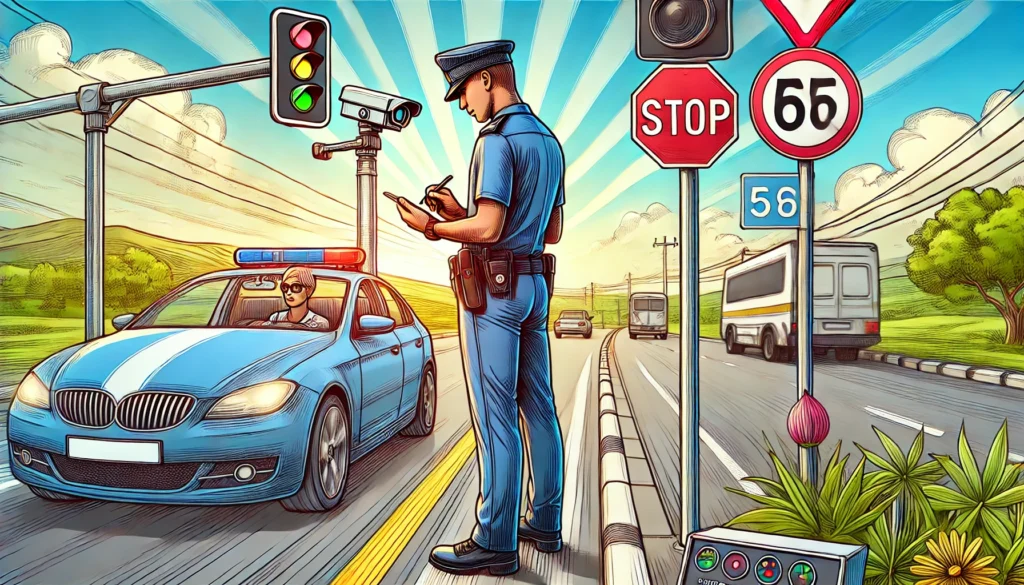
New Traffic Regulations Implemented for Festive Season 2024
As the festive season approaches, South African motorists should be aware of the recently enacted National Road Traffic Amendment Act, 2024, which introduces significant changes aimed at enhancing road safety and reducing accidents nationwide.
Here’s a summary of what you need to know.
Key Changes Introduced by the Amendment Act
- Stricter Regulations for Driving Schools and Testing Centres: The Act mandates the registration and grading of driving schools and instructors, ensuring adherence to uniform standards. This measure aims to improve the quality of driver education and training.
- Enhanced Penalties for Traffic Violations: Motorists found guilty of serious offences may face suspension or cancellation of their driver’s licenses and vehicle registrations. The Act also introduces new offences related to learner’s licenses and fraudulent activities during driving tests.
- Implementation of the Demerit System: The Administrative Adjudication of Road Traffic Offences (AARTO) Act introduces a demerit system where drivers accumulate points for traffic violations. Exceeding a certain threshold can lead to license suspension. The Department of Transport plans to have the system fully implemented by July 2024.
Government’s Commitment to Road Safety
President Cyril Ramaphosa’s assent to the Amendment Act underscores the government’s dedication to prioritizing road safety and reducing the alarming rate of road fatalities. Western Cape Provincial Minister of Mobility, Isaac Sileku, emphasized the importance of swift finalization of accompanying regulations to ensure effective enforcement.
Implications for Motorists
With the festive season known for increased travel and higher accident rates, these new regulations aim to promote responsible driving behavior. Motorists are advised to familiarize themselves with the changes to avoid penalties and contribute to safer roads.

Implications for Law Enforcement Officers and Prevention of Corruption
The National Road Traffic Amendment Act, 2024, introduces critical changes for law enforcement officers tasked with ensuring road safety during the festive season and beyond. These changes not only enhance accountability but also address longstanding concerns about corruption within the system.
Enhanced Accountability for Officers
Under the new regulations, law enforcement officers are required to adhere to stricter protocols when issuing fines and enforcing traffic laws. Body cameras and real-time reporting systems are being implemented in several provinces to ensure transparency during interactions with motorists.
Measures to Combat Corruption
The Act includes provisions to minimize corruption among traffic officers by introducing:
- Electronic Systems for Fines: All traffic fines must now be issued through a digital platform, reducing the possibility of cash exchanges and fraudulent record-keeping.
- Regular Audits and Monitoring: Enforcement agencies will undergo regular audits to monitor adherence to the new regulations and investigate anomalies.
- Stricter Penalties for Corrupt Practices: Officers caught engaging in corrupt activities face harsher penalties, including dismissal and criminal charges.
Training and Resources for Officers
To ensure successful implementation, officers are undergoing extensive training on the new laws, the demerit system, and the use of electronic enforcement tools. These measures aim to empower officers to perform their duties effectively while maintaining public trust.
By holding both motorists and law enforcement to higher standards, the Amendment Act strives to create a safer and more transparent road environment across South Africa.

Please Drive Responsibly
The National Road Traffic Amendment Act, 2024, introduces comprehensive measures to enhance road safety across South Africa. As these regulations come into effect, especially during the high-traffic festive season, motorists are urged to comply and exercise caution to ensure a safer travel experience for all.
Make sure you check our News Centre for future driving news!
Source: The South African








